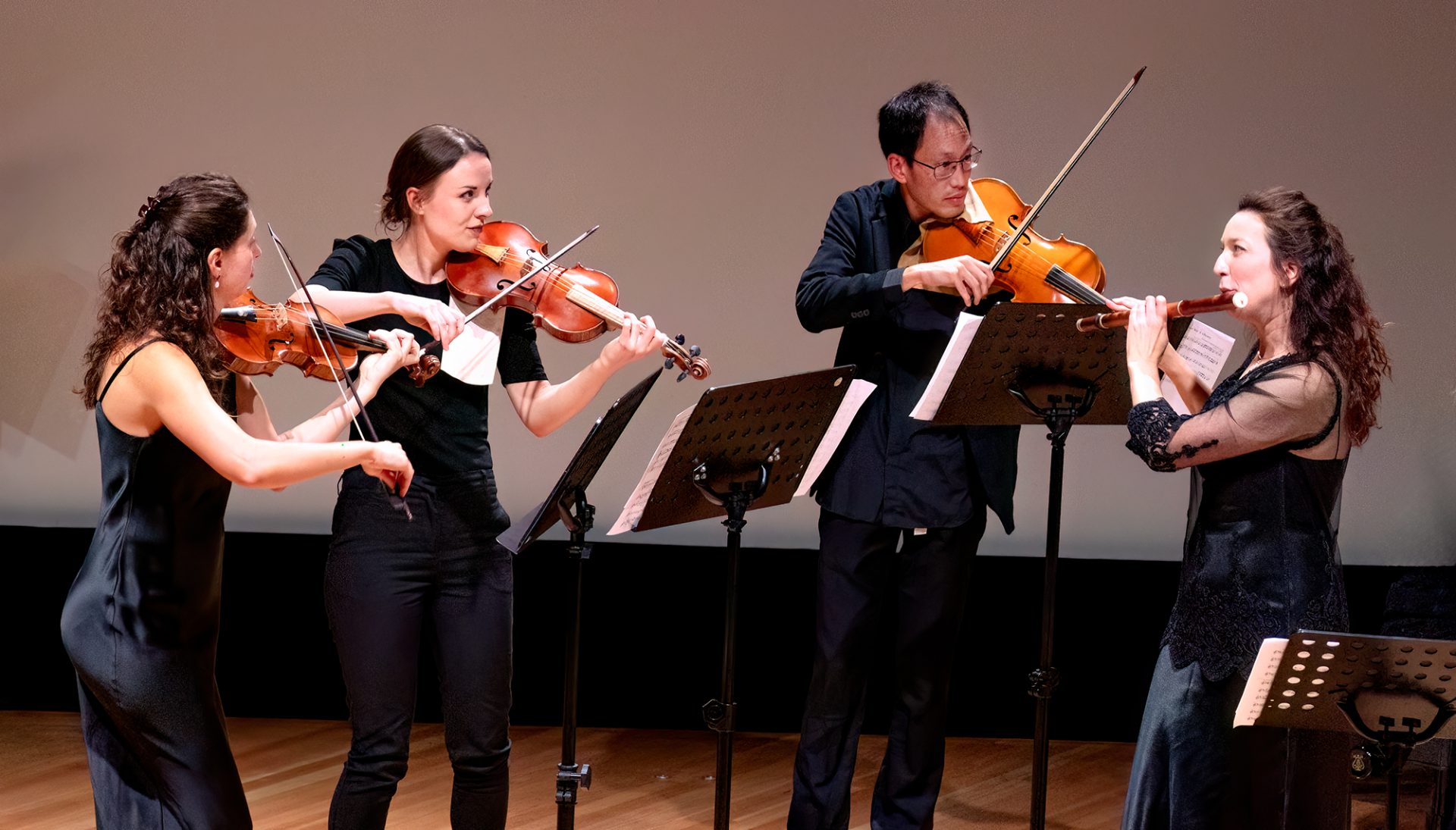Ahead of the third concert in their 2024 series, The Historian, Salut! Baroque Director Sally Melhuish speaks with SOTA about Charles Burney.
Manan Luthra: This is the third concert in Salut! Baroque’s season, following ‘The Genius’ and ‘The Influencers’. What was the inspiration behind programming ‘The Historian’?
Sally Melhuish: Salut! Baroque’s 2024 season focuses on the stories beyond the music that helped create the musical masterpieces that still enchant us. It’s the musicians, patrons, publishers and the librarians who conserved the music we still perform. Completing the picture were the 17th & 18th century historians who give life to the period – describing friendships with composers, how first performances were received, and sharing the gossip of the day. One of the most significant of these was historian, composer and musician Charles Burney. His cultural pilgrimages to collect source material throughout Europe left a legacy of strongly opinionated letters, three books and four volumes of the History of Music.
ML: Who was Charles Burney, as a person and a professional?
SM: Dr Charles Burney (1726-1814) began life spurned by his father until the age of 13. At 18 he became apprenticed to Thomas Arne (composer of Rule Britannia), who grossly exploited him as a composer, musical director and impresario – although did lead to the occasional advantage, such as meeting Handel, for whom he later played the violin and viola. Managing to break free from this bondage, Burney’s lifelong hunger for knowledge drew him to Italy “the pure source”, to begin researching a project that would occupy for him for 18 years. Burney was a proficient organist and composer, with an interest in astronomy, poetry and painting. He befriended the poet and playwright Samuel Johnson, painter Joshua Reynolds, and composers CPE Bach and Joseph Haydn.
ML: Which pieces have been selected for the concert, and why were they selected?
SM: Johann David Heinichen – Concerto in G major SeiH 214 (c1730)
Johann Joseph Fux – Sinfonia a 3 in C major, K.331
Joseph Haydn – Adagio from Symphony in D Major Hob.I:6 Le Matin (1761)
Joseph-Nicolas-Pancrace Royer – La Marche des Scythes (1746)
Georg Friedrich Handel – Concerto grosso in B-flat major, Op. 3 No. 2 (1715-18)
Antonio Vivaldi – Concerto in A Major, RV 585 (1708/9)
Henry Purcell – A Bird’s Prelude & Chaconne (1692)
Francesco Geminiani – The Enchanted Forest, H.150 (1754)
Nicola Matteis – Trio in D minor (1685)
Carl Philipp Emanuel Bach – Trio Sonata in C minor (1749)
Georg Philipp Telemann – Concerto in A minor TWV 52:a2 (c1718)
The program focuses on composers Burney either wrote about or had a personal connection with. The readings before each piece from his various publications contrast his strong opinions – from his delight at meeting such famous musicians to being dismissive of composers, musicians and venues when he didn’t enjoy a performance.
ML: Who are the performers?
SM: Sally Melhuish, Recorder,
Alicia Crossley, Recorder,
John Ma, Baroque Violin,
Ella Bennetts, Baroque Violin,
Suzie Kim, Baroque Viola,
Tim Blomfield, Baroque Cello,
Will Hansen, Baroque Double Bass,
Monika Kornel, Harpsichord,
and Duncan Driver as Dr Charles Burney.
ML: What type of impact do you think Burney’s life and work has on our appreciation of music today?
SM: During the 1770s, Burney’s thirst for musical knowledge ultimately led him first to France, then Italy, Germany and the Netherlands. Over a subsequent twenty-year period, he wrote of his intrepid travels in four momentous volumes: History of Music – the first such work in the English language. Rather than being nostalgic, the opinions Burney expressed were quite progressive. He remains the writer on eighteenth century music who is most often quoted.
ML: What do you hope audiences take from the concert?
SM: Burney’s various publications provide us with a rich source of cultural, political and social history. It is interesting to listen to the music composed in this context. For example, Burney spent only a few days in France after assessing the “mediocrity of French music” that had “undergone few changes at the great opera since Lulli’s time, that is to say, in one hundred years”, a legacy of the absolutist monarch Louis XIV’s strict control of the arts, despite his death in 1715.
Salut! Baroque’s The Historian plays at the Fairfax Theatre, National Gallery of Australia, Canberra on 21 June and Verbrugghen Hall, Sydney Conservatorium of Music on Sunday 23 June. Tickets are available here.
